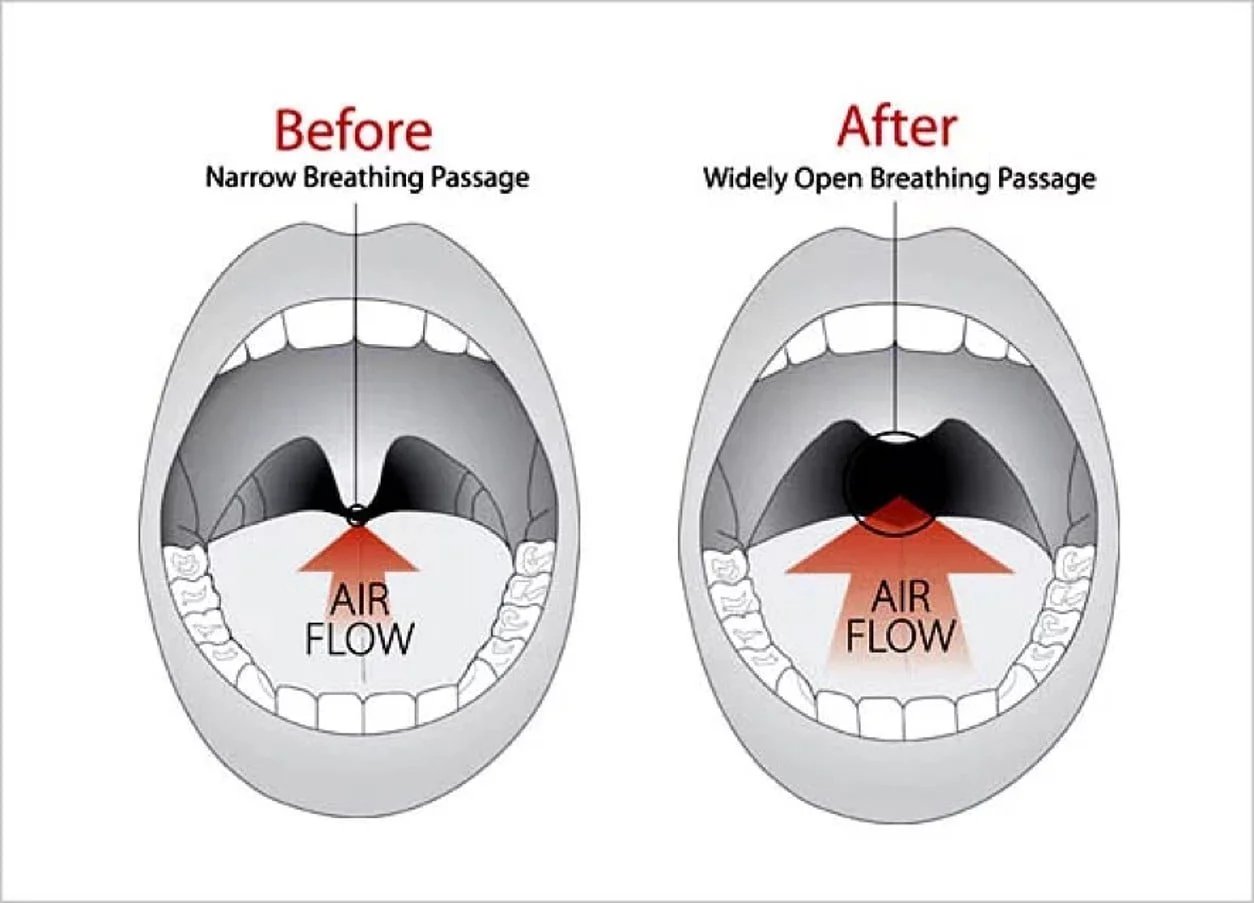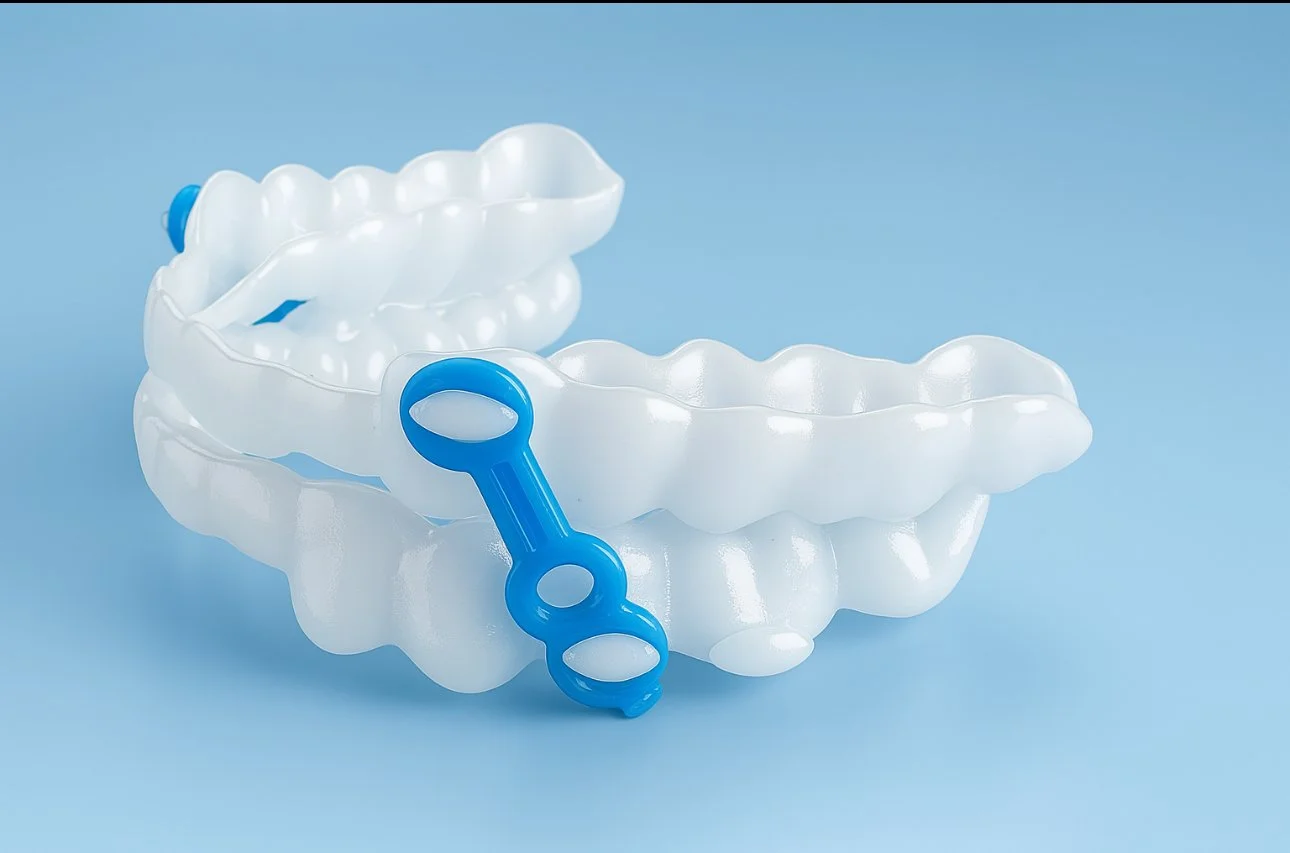sleep apnea treatment nyc
New York’s Top Sleep Apnea Dentists • Located at 29th & Broadway
The importance of sleep wellness
Have you been having difficulty sleeping? Are you waking up in the middle of the night frequently, gasping for air or choking? Are you cranky or sleepy during the day?
You may be suffering from Obstructive Sleep Apnea, a serious sleep disorder that should not go untreated.
What is Sleep Apnea?
Apnea, Sleep Apnea or Obstructive Sleep Apnea are terms for a life threatening condition that results in the temporary suspension of breathing during a normal sleep cycle. People suffering from one or more of the following conditions may be at risk for serious systemic diseases. Interrupted sleep caused by sleep apnea can lead to many systemic disorders and diseases, including:
High Blood Pressure
Type 2 Diabetes
Metabolic Syndrome
Erectile Dysfunction
Complications with Surgical Procedures
Arrhythmias
Obesity
Heart Attacks
You may suspect that you have sleep apnea if you frequently wake up several times a night, gasping for air or choking for no apparent reason, or if your bed partner tells you that you are frequently waking up in the middle of the night gasping for air or choking. Also referred to as “Apnea” or “Obstructive Sleep Apnea”, Sleep Apnea is a life-threatening condition that should be addressed immediately.
Let the expert dentists at Core Smiles evaluate and treat you for Sleep Apnea at our state-of-the-art NoMad office.
Same day appointments may be available.
what are the symptoms of Sleep Apnea?
The most common signs and symptoms of sleep apnea are:
Snoring
Daytime Fatigue and Exhaustion, also known as Hypersomnia
Difficulty Focusing, Forgetfulness or Crankiness
Trouble Falling Asleep
Narcolepsy
Dry Mouth or Sore Throat
Night Sweats
Headaches
Depression and/or Anxiety
EXPERT TREATMENT FOR SLEEP APNEA
Visit our friendly office in the heart of NoMad / Flatiron and meet with our sleep apnea experts.
CORE SMILES
1182 Broadway, 4th Floor
New York NY 10001
how is sleep apnea diagnosed?
The Core Smiles dentists will evaluate you if you suspect you have sleep apnea. A comprehensive examination and a thorough medical history are taken along with a digital scan of your teeth and bite. The position of your TMJ (jaw joint) will be analyzed and if necessary, x-rays and/or an MRI will be prescribed. Once this data is gathered, a take-home Sleep Apnea testing device may be recommended to help measure the extent of apnea episodes that occur while you sleep and provide us with comprehensive objective data that will allow us to track your progress once an oral appliance treatment device is prescribed.
How is sleep apnea treated?
Sleep apnea may be treated with the airVata oral appliance or the revolutionary Fotona Nightlase® laser treatment. Nightlase® uses a powerful medical-grade laser to stimulate collagen contraction in the tissues of the upper airway. Essentially, this means that those tissues become tighter helping to reduce the risk that they will collapse during sleep and contribute to sleep apnea and snoring.
Obstructive sleep apnea occurs when the muscles that support the soft tissues in your throat, such as your tongue and soft palate, temporarily relax. When these muscles relax, your airway is narrowed or closed, and breathing is momentarily cut off.
The Fotona Nightlase treatment is a quick, painless and easy method that is highly effective in eliminating snoring and OSA.
Fotona NightLase Treatment or a Sleep Apnea Appliance - What is your best option?
Fotona NightLase treatment is ideal for individuals experiencing mild to moderate snoring caused primarily by the vibration of soft tissues in the throat, without significant anatomical obstruction or severe sleep apnea. Candidates typically do not have major airway collapse, and their symptoms are often limited to snoring or mild sleep disruptions. NightLase uses laser technology to tighten and thicken the oral and throat tissues, reducing snoring by minimizing tissue vibration without the need for invasive devices.
In contrast, patients who suffer from obstructive sleep apnea (OSA), characterized by repeated airway blockages leading to interrupted breathing and oxygen deprivation during sleep, are better suited for an oral sleep apnea appliance. These oral devices physically reposition the jaw or tongue to maintain an open airway throughout the night. Candidates for oral appliances usually have moderate to severe sleep apnea diagnosed through a sleep study, and they require more substantial airway support than what NightLase can provide.
In summary, NightLase is best for mild snorers with minimal airway obstruction, while oral sleep apnea appliances are necessary for individuals with confirmed OSA or significant airway collapse requiring mechanical intervention.
The airVata Sleep Appliance
The AirVata Sleep Apnea Appliance is an innovative oral device designed to effectively manage obstructive sleep apnea (OSA) by maintaining an open airway during sleep. It functions by gently repositioning the lower jaw and tongue forward, preventing airway collapse and reducing apnea events, thereby enhancing breathing and improving sleep quality.
Testing for Sleep Apnea
Diagnosis of sleep apnea typically begins with an evaluation of symptoms such as loud snoring, daytime fatigue, witnessed pauses in breathing during sleep, and morning headaches. To confirm the diagnosis, a sleep study or polysomnography is conducted. This test records various physiological parameters overnight, including brain activity, eye movement, muscle activity, heart rate, airflow, oxygen levels, and respiratory effort. The data collected helps determine the severity and type of sleep apnea, whether obstructive, central, or mixed.
In some cases, a home sleep apnea test (HSAT) may be prescribed, which monitors fewer parameters but allows for convenient testing outside of a sleep lab environment. Upon confirmation of obstructive sleep apnea, patients may be considered candidates for oral appliance therapy, such as the AirVata device.
Fitting and Implementation of the AirVata Appliance
The fitting process of the AirVata Sleep Apnea Appliance begins with a comprehensive dental examination and assessment of the patient’s oral and jaw anatomy. Precise impressions or digital scans of the upper and lower teeth are taken to create a customized device tailored to the patient’s unique dentition and jaw structure.
Once the appliance is fabricated, the initial fitting appointment involves verifying comfort and proper jaw positioning. The device is designed to be adjustable, allowing the dentist to incrementally advance the lower jaw forward to the optimal position that alleviates airway obstruction without causing discomfort or temporomandibular joint (TMJ) strain.
Patients are instructed on proper use, cleaning, and maintenance of the appliance. Implementation usually involves wearing the device nightly during sleep. Follow-up visits are scheduled to monitor treatment effectiveness, adjust jaw advancement if necessary, and ensure oral health is maintained. Polysomnography or HSAT may be repeated to objectively confirm improvement in sleep apnea severity.
The AirVata Sleep Apnea Appliance offers a non-invasive, comfortable alternative to continuous positive airway pressure (CPAP) therapy, making it particularly suitable for patients with mild to moderate OSA or those who have difficulty tolerating CPAP devices. Through expert fitting and ongoing care, it significantly contributes to improved sleep quality and overall health.
frequently asked questions about snoring and sleep apnea in nyc
What causes snoring?
Snoring is caused by the vibration of soft tissues in the throat when airflow is partially blocked during sleep. Common factors include nasal congestion, excess weight, alcohol consumption, and sleep position.
What is obstructive sleep apnea (OSA)?
Obstructive sleep apnea is a disorder in which the airway becomes partially or completely blocked during sleep, causing pauses in breathing, low oxygen levels, and disrupted sleep.
How is sleep apnea diagnosed?
Diagnosis involves clinical evaluation, patient history, and often a sleep study (polysomnography). Dentists can screen patients and refer them for formal testing when necessary.
What treatment options are available for snoring and sleep apnea?
Treatment may include CPAP therapy, dental sleep appliances (oral devices that reposition the jaw and tongue), lifestyle changes, laser therapy and occasionally surgery. Core Smiles specializes in custom oral appliances for NYC patients and the Fotona Nightlase laser therapy procedure.
How do dental sleep appliances work?
These oral devices reposition the lower jaw and tongue to keep the airway open during sleep. They are custom-fitted for comfort and are especially effective for mild to moderate sleep apnea.
Who is a good candidate for dental sleep appliances?
Ideal candidates are adults with mild-to-moderate sleep apnea or those who cannot tolerate CPAP. Patients must have healthy teeth and gums and no severe TMJ disorders.
Does insurance cover dental sleep appliances?
Coverage varies. Some medical insurance plans partially cover oral appliances for sleep apnea. Core Smiles can guide patients on insurance options and financing.
Can dental sleep appliances help reduce snoring?
Yes. These appliances often significantly reduce or eliminate snoring by keeping the airway open during sleep. They are effective for many patients without severe sleep apnea.
We’ll See you Soon at Core Smiles NoMad







